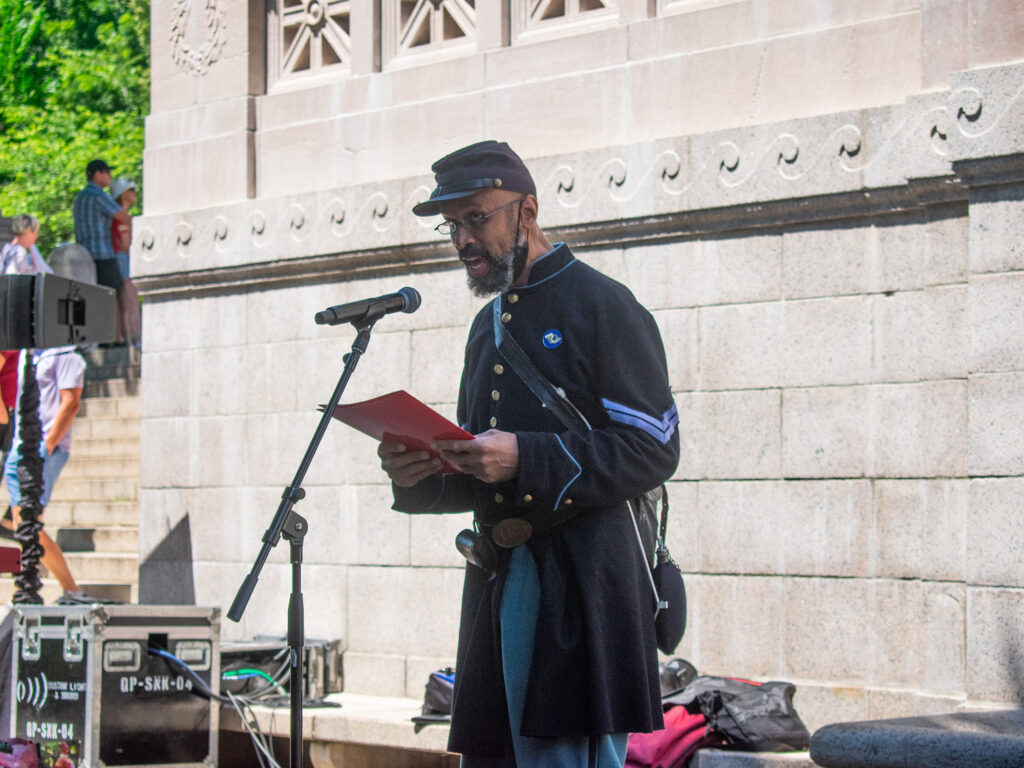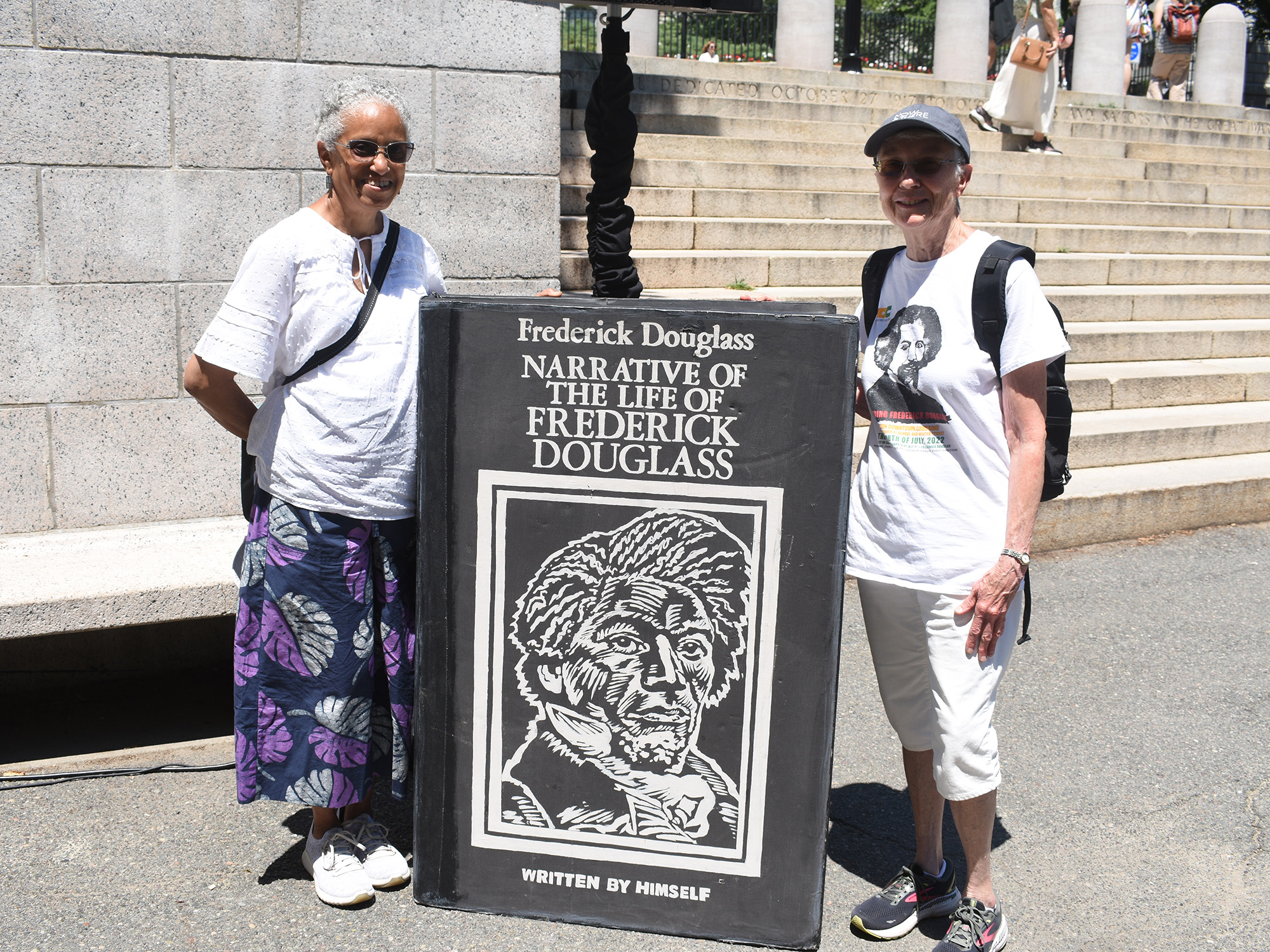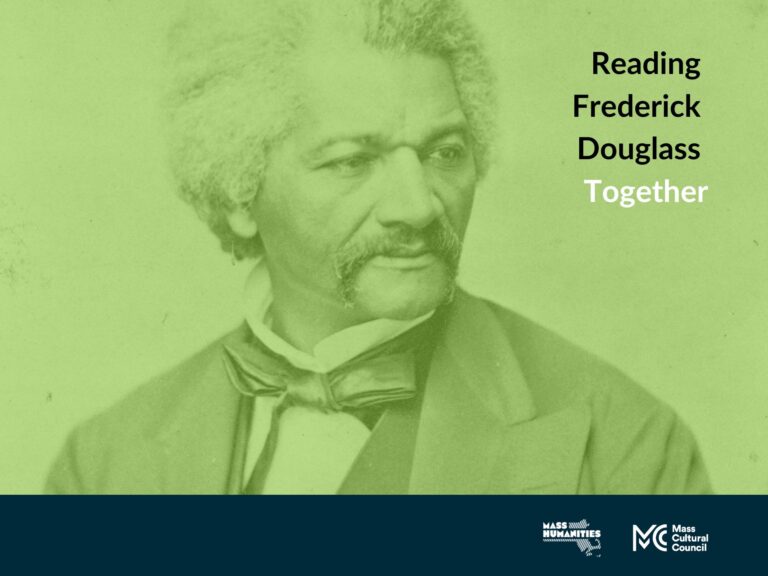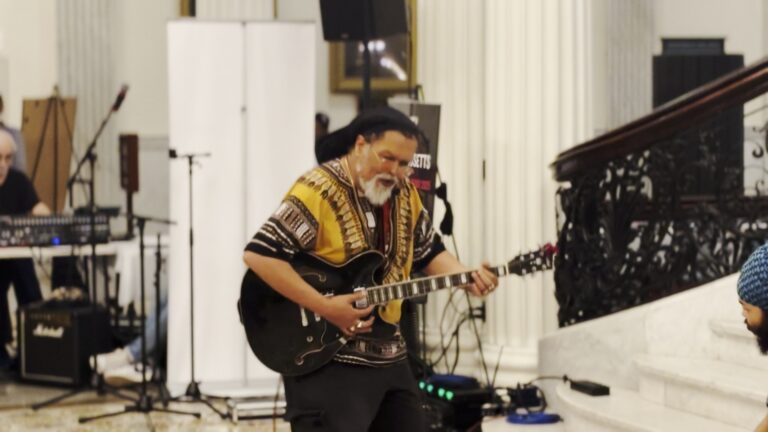“Frederick Douglass is my hero,” says Boston resident Nancy Ahmadifar.
The first time she attended a reading of “What to the Slave is the Fourth of July?” in Jamaica Plain, she hadn’t intended to read part of the speech. She planned on simply observing, she said. But after listening to others speak at the microphone, she felt caught up in the momentum of the gathering, and felt motivated to participate.
“I feel like I’m bringing Frederick Douglass to life,” she explained. “It’s always so moving to hear his words.”
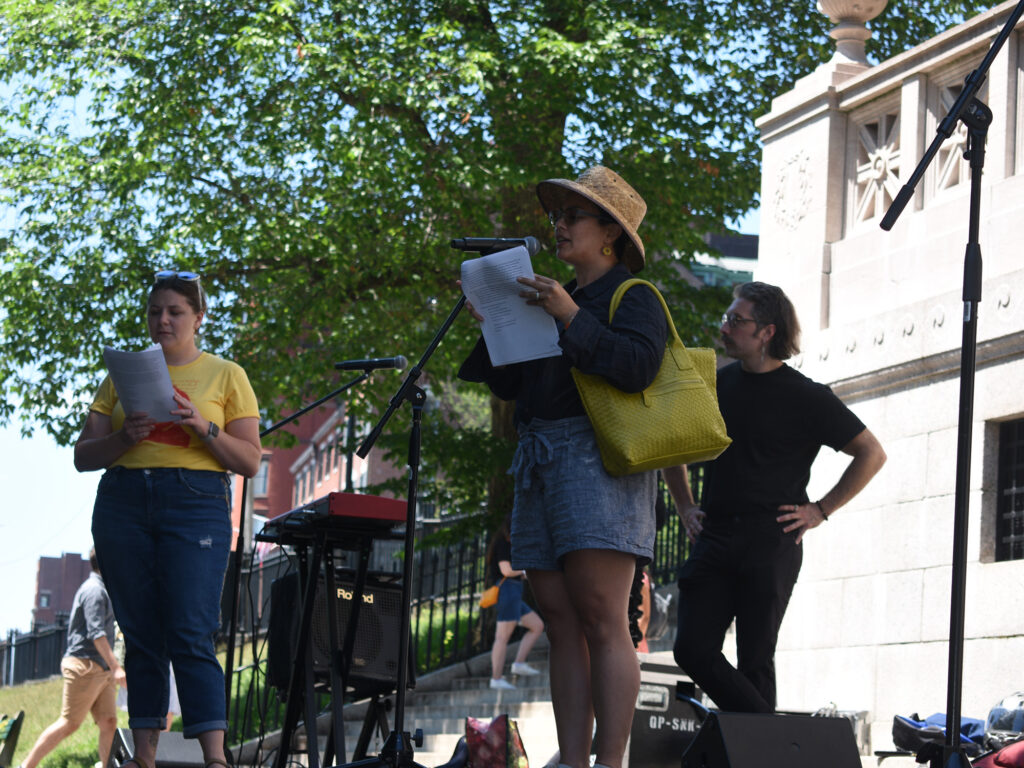
On July 2, approximately 50 people gathered at the foot of the Robert Gould Shaw and Massachusetts 54 Regiment Memorial to read Douglass’ famous address. The reading represents a major milestone for Mass Humanities, as it was the organization’s 15th time hosting the event. Community Change, Beacon Hill Scholars, and Unitarian/Universalist Urban Ministry co-sponsored this year’s reading.
Roberta Logan, of Dorchester, says that public readings of Douglass’ speech can serve as a guidepost for youth.
“I think it’s really powerful when young people find connection with the words of somebody in the past,” she said. “If they find connections, if they have ‘aha’ moments, I think that moves them into a more thoughtful understanding of history, and how history affects how we are living today.”
Jeffrey Dandridge, a staff sergeant in the U.S. Army now living in Boston, attended the reading on the Boston Common for the first time. While he didn’t read any passages, he did take photographs during the event, which he says serve as reminders of hope and community solidarity.
“I’m listening to the readings and I realized that not a lot has changed, but we’re still working on it,” he said. “What stood out was that everybody is here trying to make change.”
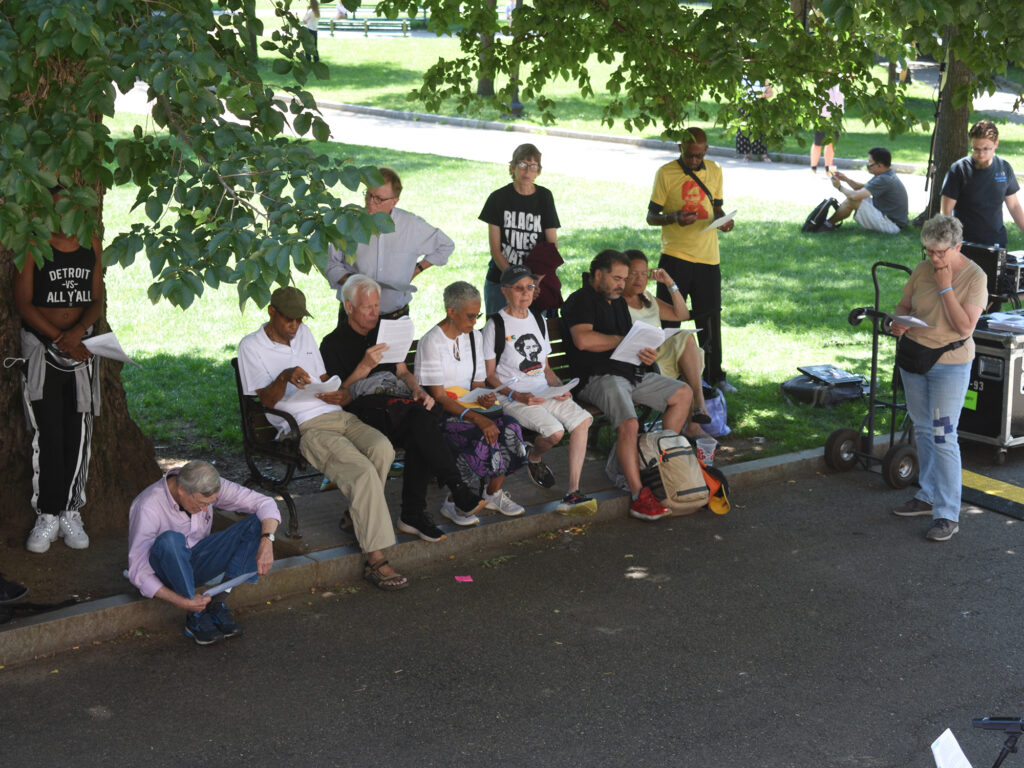
Gerard Grimes and Emmett Bell-Sykes have attended numerous readings on the Boston Common. What sets them apart from other readers is their attire–both men dress in civil war garb to represent soldiers of the 54th regiment.
For Bell-Sykes, who is the president of the 54th Massachusetts Volunteer Infantry, Company ‘A’, the clothing underscores the connection between Douglass’ speeches about inequality, and the soldiers who gave their lives fighting for freedom during the Civil War. He also says that Douglass’ word get at the heart of what W.E.B. Du Bois would later term “double consciousness.”
“What is freedom, really?” Bell-Sykes asked. “It forces us to think about Independence, but then think about independence.”
“That’s what Douglass was pointing out. This idea that there are two things going on. If you want to understand Black America, you need to understand that things kind of look a little different to us.”
“I believe that speech opens people’s eyes, if they really read it and really understand it, to know what the message is,” added Grimes.
“America has been fighting to catch up to her ideals all this time,” said Bell-Sykes.
